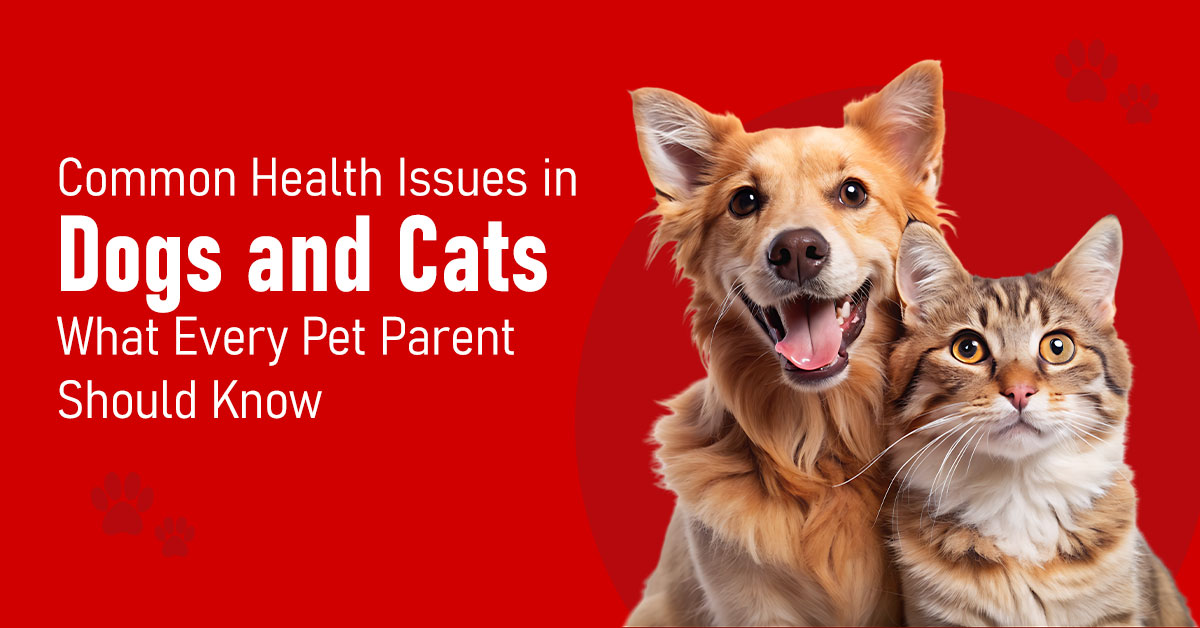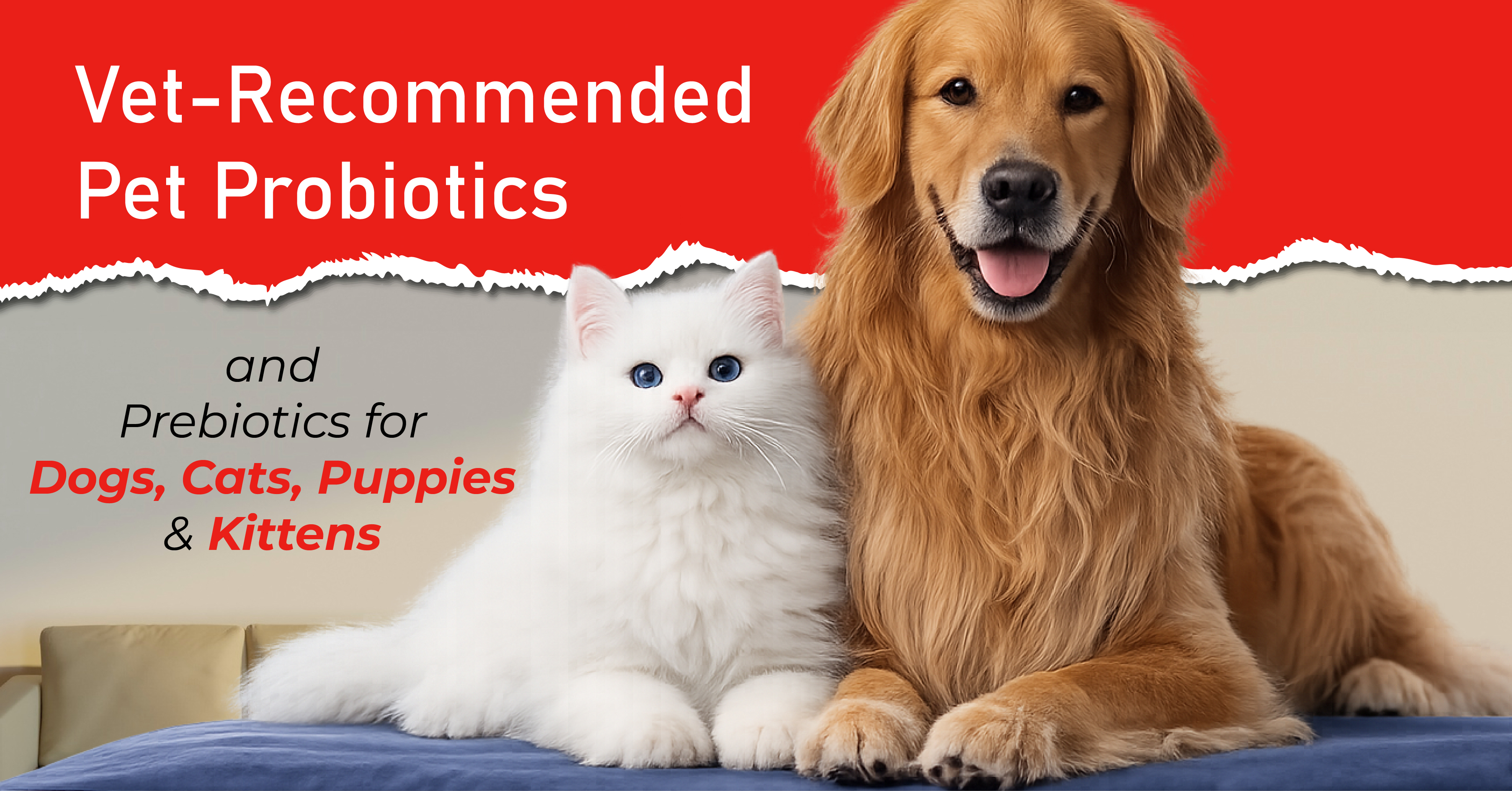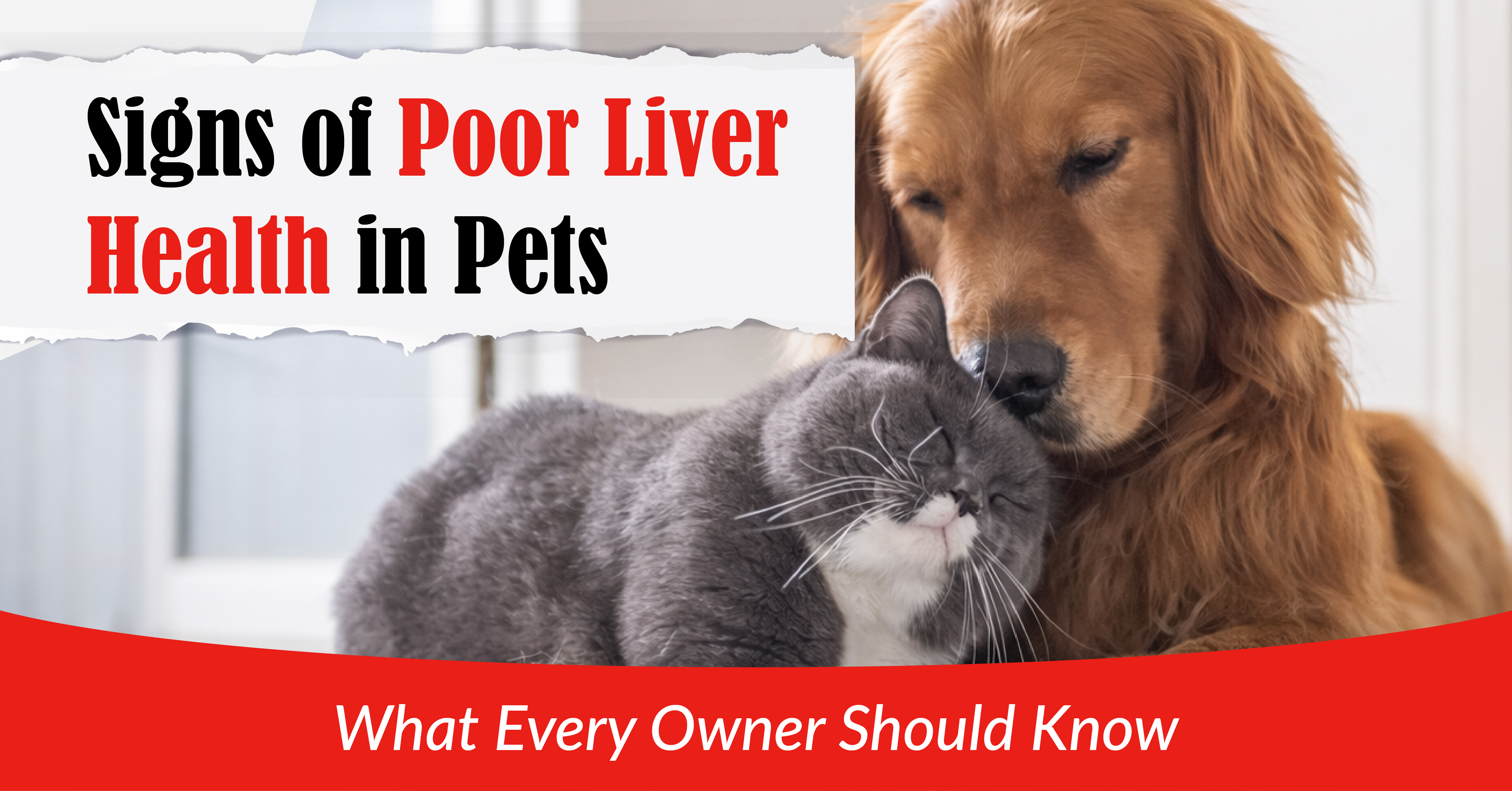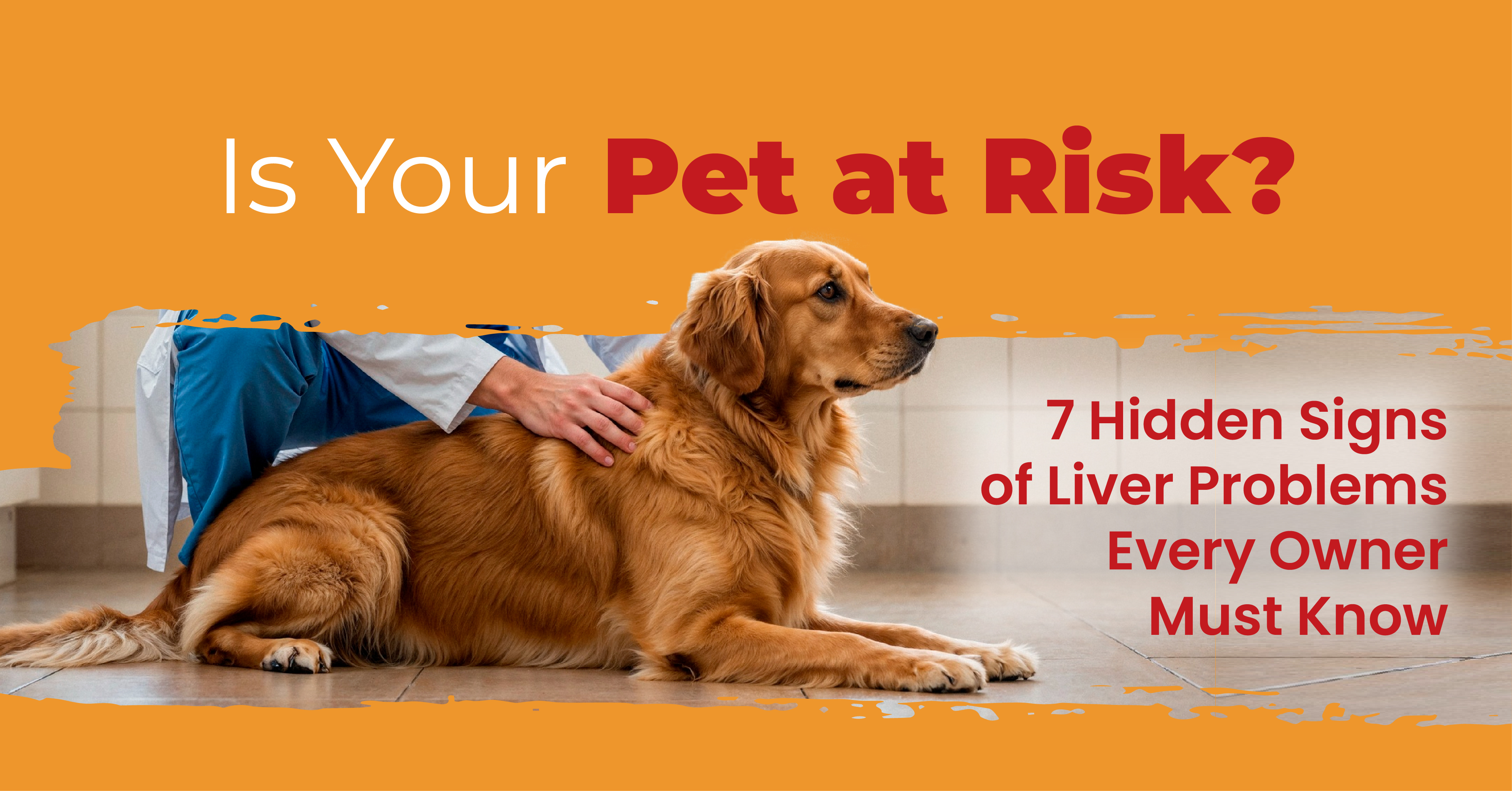Table of Contents
More from Blog
Common Health Issues in Dogs and Cats – What Every Pet Parent Should Know
Apr 05, 2025

If you’ve ever been greeted at the door by a wagging tail or woken up to a warm, purring furball curled beside you, you already know one thing—pets aren’t just animals, they’re family. Like humans, dogs and cats can face health issues at different stages of life. Being aware of early signs and acting promptly can prevent minor concerns from becoming serious problems.
Understanding common pet health issues helps pet parents make informed decisions, provide better care, and ensure a longer, healthier life for their companions.
Fleas, Ticks & Parasites – The Uninvited Guests
Parasites are one of the most common pet health concerns, especially in warm and humid climates. Fleas and ticks cause irritation and may transmit infections.
What to look for
- Excessive scratching or biting
- Red, inflamed skin
- Small black specks on fur or bedding
- Restlessness or discomfort
Pet & vet tip
Use flea and tick prevention treatments only as recommended by your veterinarian. Regular grooming and routine checks after outdoor activity can help detect problems early. Consult your vet before starting any preventive product.
Dental Disease – Beyond Bad Breath
Dental health is often overlooked, but poor oral hygiene can affect the mouth and overall health.
What to look for
- Persistent bad breath
- Red or bleeding gums
- Difficulty chewing
- Pawing at the mouth
How to take care of animal dental health
Brush your pet’s teeth with vet-approved toothpaste and provide dental care for pets chews. Regular veterinary dental check-ups are essential for long-term pet wellbeing.
Obesity – The Silent Risk
Extra weight can strain joints, reduce mobility, and increase the risk of diseases like diabetes or heart issues.
What to look for
- Reduced activity
- Difficulty running or jumping
- No visible waistline
- Rapid or gradual weight gain
Pet care advice
Follow a balanced feeding plan advised by your vet, limit table scraps, and encourage daily exercise through walks and interactive play. Monitor your pet’s weight regularly and consult your veterinarian if you notice rapid weight gain or reduced activity.
Ear Infections – Floppy Ears, Fussy Friends
Pets with floppy ears or frequent water exposure are more prone to ear infections. Untreated infections can cause pain and long-term issues.
What to look for
- Head shaking
- Foul odour from ears
- Redness or discharge
- Sensitivity around ears
Pet & vet strategy
Clean ears gently with vet-approved solutions. Keep ears dry during baths and consult a vet if symptoms persist. You can also use ear care products to help maintain your pet’s ear health.
Urinary Tract Issues – Often Overlooked
Urinary problems are common, especially in cats, and can become serious if untreated.
What to look for
- Straining while urinating
- Frequent attempts with little output
- Blood in urine
- Urinating outside usual areas
How to take care of animals with urinary issues
Ensure constant access to fresh water. Wet food can help hydration, especially for cats. Any sudden change in urination habits requires veterinary attention immediately. Check our guide on urinary health support for pets.
Stomach Upsets – Vomiting & Diarrhoea
Digestive issues are a frequent reason for vet visits. Persistent symptoms should not be ignored.
What to look for
- Repeated vomiting or diarrhoea
- Loss of appetite
- Lethargy
Pet care steps
Offer easily digestible food as advised by your vet. Avoid table scraps. If symptoms continue beyond 24 hours, consult a veterinarian. Learn more about digestive health in pets in our blog section.
Allergies & Skin Problems – Itchy, Scratchy, Miserable
Pets can suffer from allergies leading to skin issues ranging from mild itching to severe infections.
What to look for
- Excessive licking or scratching
- Hair loss
- Red or inflamed skin
- Hot spots
Pet health care tip
Work with your vet to identify triggers. Special diets, medicated shampoos, or prescribed treatments may be required. Consult your veterinarian before using any medication. See our skin care products for pets for recommended solutions.
Final Thoughts: Keeping Your Pet Healthy
Caring for pets goes beyond feeding and affection. Routine veterinary check-ups, balanced nutrition, hygiene, exercise, and vigilance form the foundation of lifelong pet health. Always consult your veterinarian before starting any treatment or supplement.
Ensure your pets receive the best care possible. Explore Azista Vet for trusted veterinary products and pet health solutions to support your companion’s wellbeing.
Frequently Asked Questions (FAQs)
What are the most common health issues in dogs and cats?
Parasites, dental disease, obesity, ear infections, digestive problems, urinary issues, and skin allergies are the most frequent concerns.
How often should pets visit a veterinarian?
Routine check-ups are recommended at least once a year. Older pets or those with health conditions may require more frequent visits. Learn about veterinary check-ups here.
Are parasites dangerous for pets?
Yes. Fleas and ticks can cause infections and transmit diseases. Preventive care is essential.
Can dental disease affect overall health in pets?
Yes. Untreated dental disease can lead to pain, infections, and may affect vital organs like the heart and kidneys.
When should I worry about vomiting or diarrhoea?
If symptoms persist beyond 24 hours, or are accompanied by lethargy or loss of appetite, consult your veterinarian immediately.
How can I prevent obesity in my pet?
Feed a balanced diet, control portion sizes, limit treats, and ensure regular exercise as advised by your vet.
Are skin allergies common in pets
Yes. Allergies from food, environment, or parasites can lead to skin irritation. Veterinary guidance is key for effective management.




